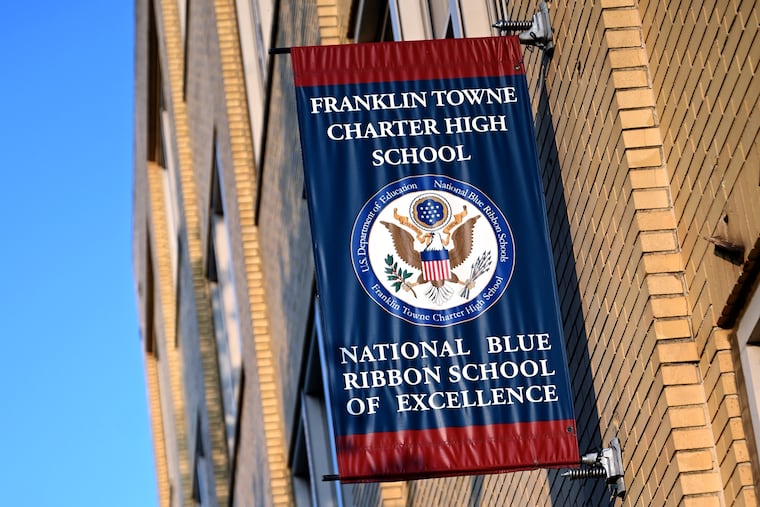The Philadelphia school board attempted to revoke Franklin Towne’s charter. Nearly a year later, the process remains unresolved.
District officials, seemingly frustrated by the slow pace of what was supposed to be an emergency relief hearing, have appealed the matter to Commonwealth Court.

Nearly a year after the Philadelphia School District voted to begin the charter revocation process for Franklin Towne Charter High School — the high-performing Northeast Philadelphia school accused of rigging its lottery to keep out certain students — the effort remains held up in Common Pleas Court.
District officials, seemingly frustrated by the slow pace of what was supposed to be an emergency relief hearing, have appealed the matter to Commonwealth Court. But Franklin Towne lawyers hold that the district is attempting to appeal the non-appealable, and are seeking both sanctions for what it calls a “frivolous” move and to kill the appeal.
The backdrop
The contentious matter centers on Franklin Towne’s alleged lottery fixing. A whistleblower told The Inquirer that Franklin Towne officials deliberately shut out students from certain zip codes and siblings of some students with academic and behavioral challenges. District officials found evidence of possible lottery manipulation dating back at least four years.
One school board member noted that Franklin Towne was being called out for “blatant racist practices that they have been on alert for for quite some time, and just choose to ignore.”
Last August, the school board voted to begin charter revocation proceedings against Franklin Towne.
That doesn’t mean the school would close, but it would trigger a formal district hearing, with witnesses and evidence before a hearing officer, and would require the school board to take another vote on whether to close the school after a hearing report was compiled.
Board officials have publicly said that the end goal of the revocation vote is not necessarily closing Franklin Towne — which has been recognized by the U.S. Department of Education as an academically exemplary school. Instead, under Pennsylvania law, a nonrenewal vote is the only move officials have that allows for a public fact-finding examination of serious allegations of impropriety.
In October, just before Franklin Towne’s hearing was supposed to begin, the school sued the district, charging that the hearing officer it planned to use was biased, claims it said were bolstered by an independent examination of the district’s charter authorizing practices conducted after a group of Black-led charters said they were treated unfairly because of racist practices.
That report found no overt racism, but did suggest that the district stop using Rudy Garcia to run its charter hearings because “this practice has created the appearance of an improper bias toward the Board of Education and has resulted in a lack of trust in the system from the charter school sector.”
Garcia had been set to preside over the Franklin Towne revocation hearing.
Later, Franklin Towne added further charges to its claim, challenging as unconstitutional the portion of Pennsylvania law under which the district sought to revoke the charter.
Common Pleas Court Judge Anne Marie Coyle has held four hearings on the matters since October. After the latest hearing, Coyle, who herself has sat on a charter school board, said she would issue a ruling by Aug. 9.
Peng Chao, chief of the district’s charter office, board president Reginald Streater, and Franklin Towne lawyer Mark Seiberling declined to comment for this story.
From a hearing
Coyle, in a March hearing, questioned Streater on the witness stand.
“Assuming for the moment that there was a gerrymandering of lottery picking of students, can you tell me, please, why would that cause a concern?” Coyle said, according to court documents.
That lottery fixing would be a problem, Streater said, “because the board takes any allegations that there may be inequitable treatment of students very seriously, number one. Number two, if a school was breaking or seen as breaking the law, not acting within the spirit of charter law, it’s our duty as the authorizers in Philadelphia to get to the bottom of it.”
Pennsylvania law says students must have an equal chance at admission to charter schools.
Coyle in January ordered all revocation proceedings formally put on hold until her ruling is issued.